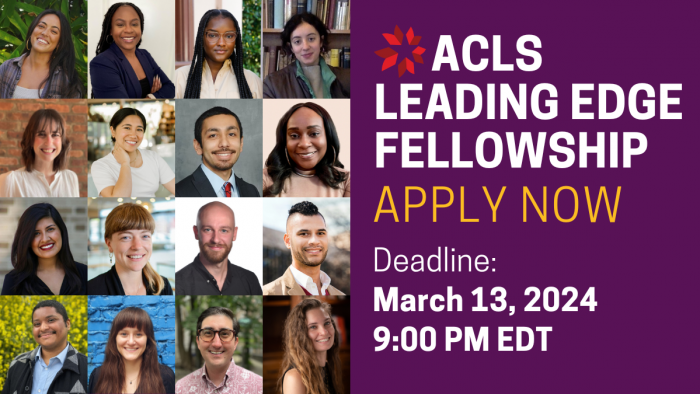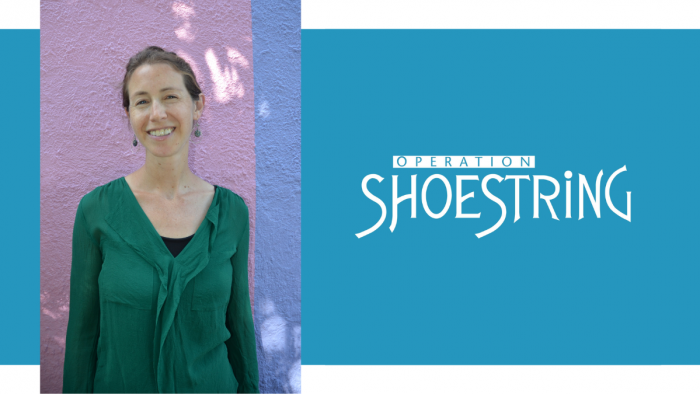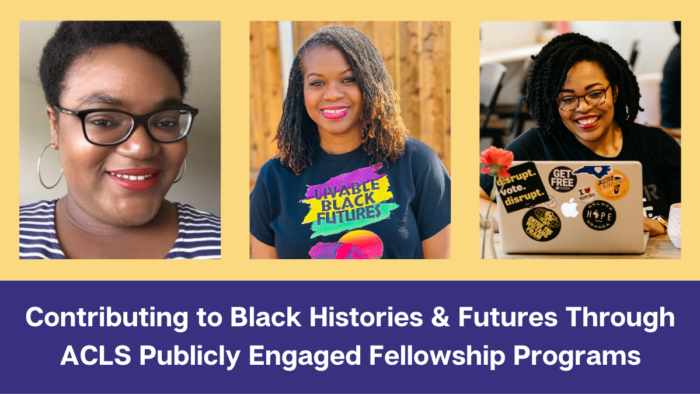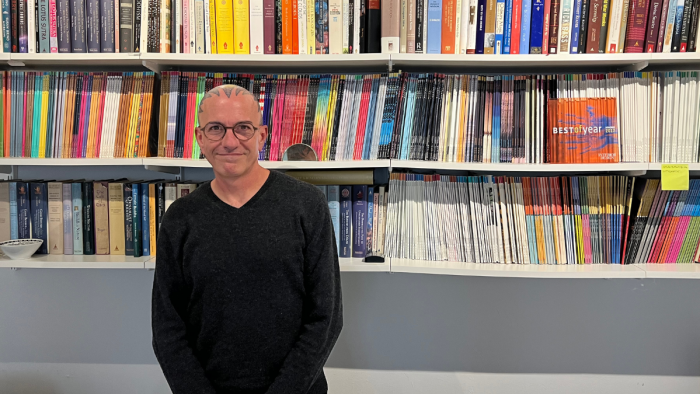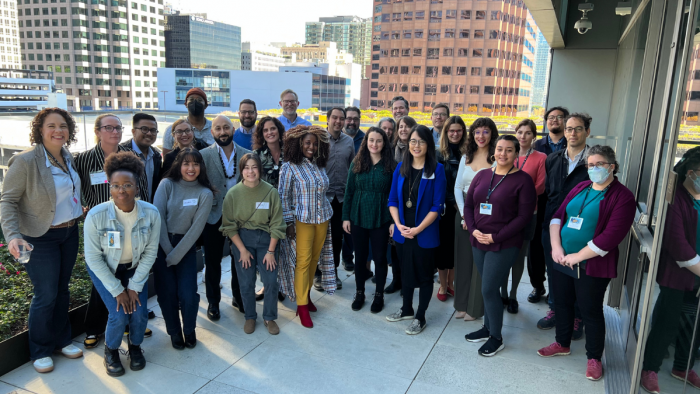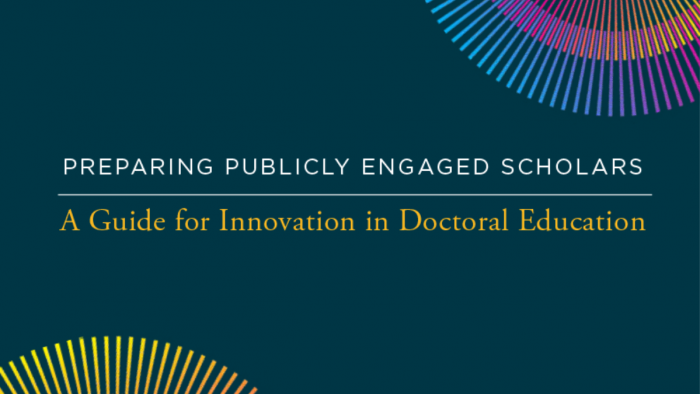

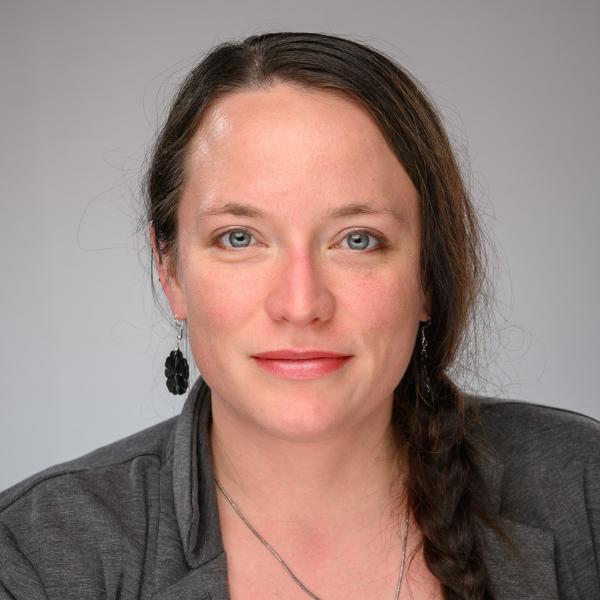
Winter 2024 has been a dynamic season for a of a number of initiatives at ACLS. We’ve just released a new report, Preparing Publicly Engaged Scholars and also recently launched the 2024 competition of the Leading Edge Fellowship Program. This report and program are two of a number of initiatives at ACLS that promote the value of advanced training in the humanities and interpretive social sciences, while also recognizing that a more inclusive and impactful academy will need to respond to the needs, interests, aspirations, and potential of a diverse set of current and future graduate students and recent PhDs.
Preparing Publicly Engaged Scholars draws on the experiences of Mellon/ACLS Scholars and Society Fellows and doctoral students from some of the leading programs in the country. Both groups offer insights and recommendations for improving and providing more opportunities for publicly engaged doctoral education. We asked program alumni to propose short reflections and best practice pieces coauthored with at least one graduate student. Some also included perspectives from community partners and other research project participants. All are grounded in the fellowship experience and are meant to provide models, inspiration, justification, and strategies for others interested in training or supporting the work of publicly engaged doctoral students. Writing and workshopping this guide over the course of summer and fall 2023,faculty, students, and community members reflected on how key aspects of their experience can be shared and applied beyond the specificity of the Mellon/ACLS Scholars and Society Fellowship Program.
This project taught us a lot about the professional and scholarly ambitions of current doctoral students and recent PhDs. It also helped to guide our thinking and approach in selecting and developing fellowship positions for the upcoming Leading Edge Fellowship competitions. In this program, ACLS partners with nonprofit organizations working to advance social justice initiatives in communities across the country. Each partner offers a two-year position with a portfolio of work that will advance the strategic mission of the organization while providing a recent PhD with opportunities to build on their knowledge and experience and to demonstrate their skill and potential.
ACLS created the Leading Edge Fellowship Program in the summer of 2020, both to respond to the negative impacts of the COVID-19 pandemic and as an evolution of our ongoing work to promote the value and applicability of advanced humanities training in careers beyond academia. In this way, it represents a doubling down on the proposition that the skills, capacities, and intellectual vigor honed in the course of gaining a PhD in the humanities or interpretive social sciences have serious practical value, and that these scholars can contribute to the work of building just communities enriched by meaning and empowered by critical thinking.
Each year, we find that PhDs who have engaged in community or publicly engaged research as graduate students tend to have both a wide range of relevant experience as well as a great facility with describing their training to those outside of academic spaces. This resonates with the recommendations of Preparing Publicly Engaged Scholars. The report contains many useful and interesting examples of the kinds of skills and abilities that community-engaged research training can help PhD students to develop, but one of the most succinct and practical comes from the chapter “Enabling Community-Engaged and Public-Facing PhDs” by Jonathan Anjaria F’19 and Moriah King, a PhD Candidate at Brandeis University. Because community-engaged research “problematizes long-held research paradigms, shifting forms dynamically with the concerns, practices, timelines, and projects of various social movements, institutions, and self-organized communities,” it requires student-researchers to “continuously cultivate interpersonal skills like negotiation, teamwork, and conflict resolution.”
Each year, we find that PhDs who have engaged in community or publicly engaged research as graduate students tend to have both a wide range of relevant experience as well as a great facility with describing their training to those outside of academic spaces.
Not surprisingly, I’ve heard a very similar sentiment from the organizations who seek to host a Leading Edge Fellow. While they value many areas of specific content knowledge, among the more desirable characteristics they see in recent PhDs are their ability to write for a variety of audiences, confidence in communicating ideas, strategic storytelling, and their comfort in creating and maintaining relationships with different types of professionals. More than one host partner has found that the intersection of a fellows’ academic training, extra-curricular experience, and personal and political commitments allowed the fellow to understand how these organizations must often work at multiple levels of influence and impact. Fellows are uniquely equipped to understand the complex balancing act organizations face in providing direct services and programming to community members while also marshalling research and the community’s own expertise to advocate for larger scale change.
Preparing Publicly Engaged Scholars is an excellent resource for recent PhDs interested in applying for the Leading Edge Fellowship Program as well as for those exploring career opportunities more broadly. Conversely, the positions offered in the current competition serve as examples and justification for those designing doctoral curricula to lead more clearly and directly to a wider variety of professional opportunities. Taken together, these initiatives are advancing a conversation and building a community of practice in the engaged and applied humanities that crosses disciplinary, sector-based, and other traditional boundaries.

Desiree Barron-Callaci
ACLS Senior Program Officer for US Programs
Desiree Barron-Callaci is a Senior Program Officer for US Programs. Desiree helps to coordinate and enhance ACLS’s efforts to connect, convene, and learn from our member societies, higher education partners, and community of fellows, with a particular focus on issues related to PhD career pathways and the public dimensions of humanities scholarship.

